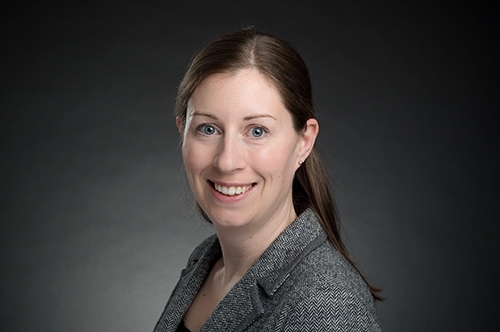Aimee Talleur '05 majored in sociology before earning an M.D. from the State University of New York Upstate Medical University in Syracuse, N.Y. Now an assistant member in the Department of Bone Marrow Transplantation and Cellular Therapy (BMTCT) at St. Jude Children’s Research Hospital, she is a physician-scientist who translates and implements novel cellular and immunotherapies as early phase clinical trials. Aimee is also the fellowship director of the BMTCT fellowship program and an advocate for, and active participant in, trainee education. She is involved in several academic organizations and enjoys spending as much time as she can with her family.
What are the most challenging and rewarding aspects of your career or volunteer activities?
The foundational education I received at Union provided me with skills I use today, whether I’m sharing a diagnosis with a young patient and their family or presenting my research to the hospital’s board. The most rewarding part of my career is that I feel like I am making a difference on multiple levels. I am helping the child and family right in front of me as they navigate what is likely one of the worst times in their lives. I want to help them get through this journey. That of course means physically, but also emotionally since some of my patients are not cured and the families are left behind to process that grief and loss of a loved one. I also am working on clinical trials that are aimed at advancing science to help a larger number of patients in the future, not just those in front of me. While these aspects are rewarding, you can imagine that they are also extremely challenging. However, for me, the reward outweighs the challenge.
Who inspired and/or inspires you, professionally and personally?
At Union, my biggest inspiration came from Matt Milless, assistant dean of students, and Kate Schurick, dean of first-year students. They led by example and opened my eyes to my potential as a leader. Professionally, it isn’t one person who inspires me. Those who paved the way for women in medicine, such as Dr. Elizabeth Blackwell, are of course an inspiration to me. But day-to-day, I draw from the people around me who are hard workers, innovators, good leaders and mentors, and astounding clinicians – qualities I strive for.
What advice would you offer today’s women students, not just at Union, but across the country?
You can succeed, both academically/professionally and personally. You are deserving of that success and the resources needed to achieve it. Women face unique challenges, and I would advise seeking out mentorship early on. When forming your mentorship team, it is important to realize it is just that, a team. Think beyond just career mentors and look for life mentors, as it is hard to find one person who can serve as everything you need as you progress through the different stages of your career.
What was your most formative experience at Union?
I was a student-worker in the Student Activities office. This longitudinal commitment led to my increased involvement in student life and included experiences such as serving as orientation leader. Just as important, it provided me with the opportunity to observe and learn critical leadership skills that I utilize now. This experience taught me a lot about myself and my potential.
